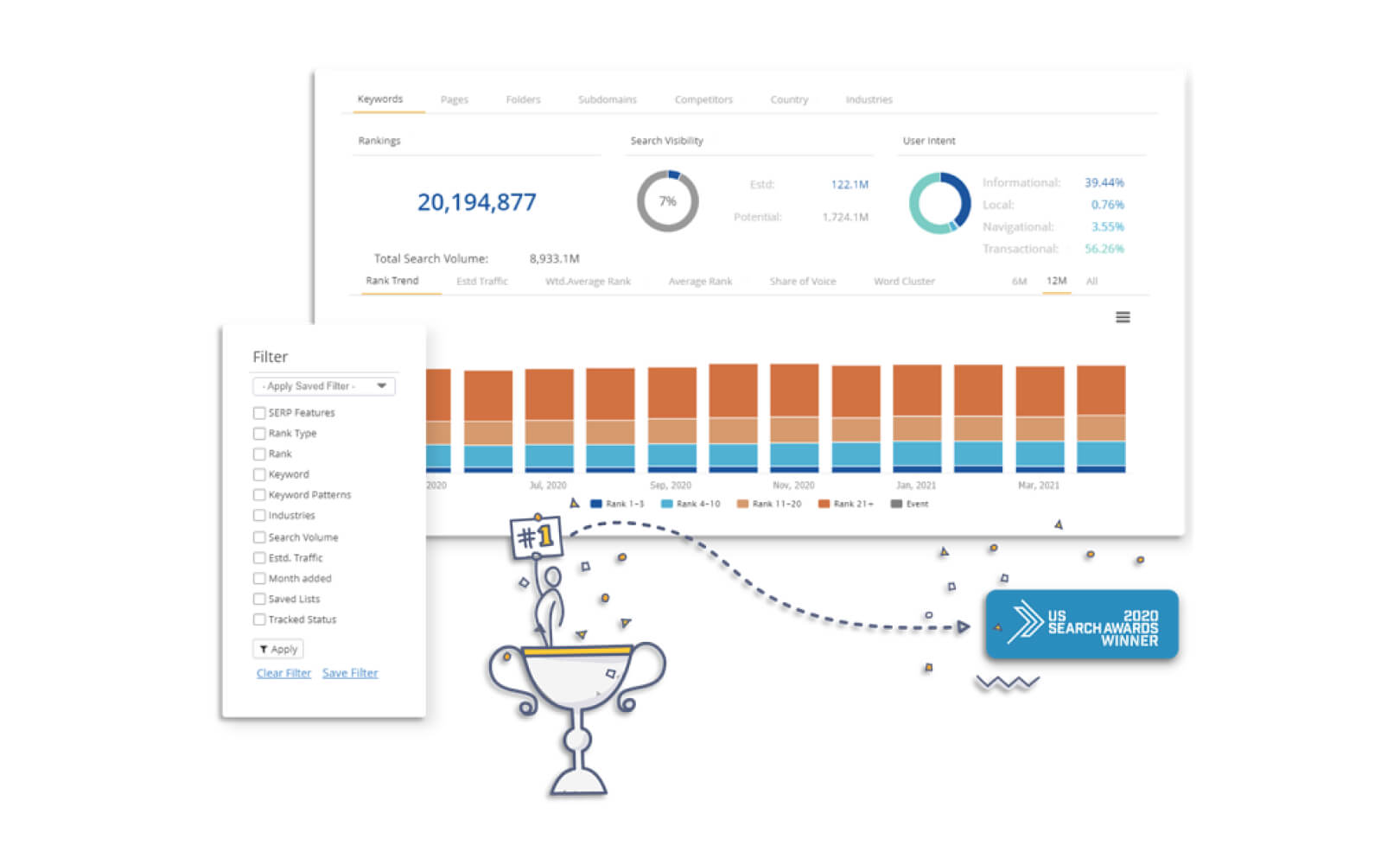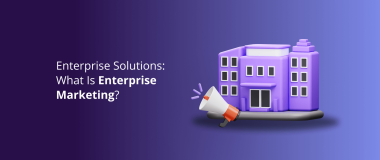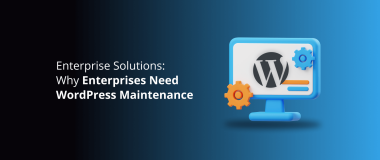Enterprise SEO is like regular SEO – but harder. Much harder.
It’s complex, requires more resources, takes more time, and is more difficult to implement.
Why is that?
Imagine how time-consuming and demanding your everyday SEO chores are, and multiply this by ten, or even a hundred.
That’s pretty much why.
In this article, we’ll be talking about what defines enterprise SEO and provide tips on how to successfully manage it.
Read on to find out!
What Is Enterprise SEO?
Enterprise SEO can, but doesn’t necessarily, mean search engine optimization for a website belonging to a large enterprise company.
In fact, even a small business with no more than 50 or 100 employees can run an enterprise-level website.
What defines enterprise SEO then?
It is commonly accepted that enterprise SEO is search engine optimization for websites that have above a thousand pages, high authority and reputation. In other words, those are websites that are not only large but successful and popular as well.
They usually are eCommerce stores, digital publications, and blogs that enjoy high traffic, have complex processes, and require a large team to run them.
Of course, a large company most likely has such a website, but the size of the company is not a prerequisite – the site of the website is.
Why Is Enterprise SEO So Important?
The larger and more complex the website is the more processes it has, and, as a result, the more things that can break. And as such, if you don’t take care of these processes, you run the risk of failing to retain your positions in the SERPs, and, thus, losing brand presence and clients.
As mentioned, popularity is part of the description of an enterprise-level website. However, your reputation won’t do your organic traffic any good if your links drop from the first page of search results.
Here’s why:
With proper SEO, small businesses are on par with large companies and can even outperform them. As a result, they can “steal” your organic traffic and establish themselves and their brands before yours in the search results.
That’s the beauty of search engine optimization and organic search – if you put in the effort and are consistent in your work, you can outrank even your more successful competitors. And if you make it in the SERPs, you can make it everywhere on the internet.
However, while this creates a healthy environment and equal opportunities for competition, for enterprise websites, this means that their teams need to work just as much as smaller companies. They simply can’t rely only on past glory. In fact, they need to work even harder, because they have more on their plate.
How to Manage Enterprise SEO
Now let’s have a look at what’s involved in managing SEO for an enterprise-level website:
1. Hire a Large Team
Simply put, a one-man show can’t manage a large enterprise website efficiently. You need a whole team of experts that take care of different aspects of optimization and are responsible for different processes.
SEO work can be challenging for a single person or a small team even on a website with a limited number of pages. However, when the number of pages passes the 1000 mark, the task becomes near impossible.
By assembling a team of content experts, keyword strategists, backlink specialists, technical SEO gurus, and paid search professionals, you can be sure that all aspects of your websites will be paid the due attention.
Furthermore, a whole team of experts is more likely to develop a comprehensive strategy, explore different angles, and find working solutions when an issue arises.
2. Establish Workflows for the Different Processes
When there are many people working on a website, in order to maintain consistency, you need to have clearly established workflows for different processes. Furthermore, you need to ensure that the communication between team members is efficient and productive.
Each workflow should be familiar to the whole team, even if it is not directly relevant to their line of work (although in SEO everything tends to be connected).
This way, the different experts will not stand in each other’s way and will be able to align their efforts and work towards a common goal, i.e. your SERP success.
3. Conduct an SEO Audit
There are so many things that could go wrong on an enterprise-level website. That’s why you should always be on the lookout for technical issues.
As mentioned, the more pages you have, the more difficult it is to keep them well-optimized and running smoothly.
Furthermore, as the regulations and requirements of search engines constantly change, your older content may become an issue without you even knowing it.
This can lead to a poor user experience, a drop in your rankings, and lower traffic.
By regularly conducting SEO audits, you will be able to identify what issues are holding back your performance in the SERPs and hurting the user experience on your website, so that you can fix them.
4. Don’t Underestimate Technical SEO
After backlinks, technical SEO is one of the most important aspects of optimizing a website. And this is even more valid for enterprise-level properties because taking care of such issues can be extremely challenging.
The reason for this is simple. Technical optimization such as adding structured data, meta tags, canonicalization, and speeding up load times is done individually for each page. Some of these can be automated, but others cannot or may not be of the same quality, and this may affect performance.
However, all these are vital for how search engines crawl, index, and understand your content and can be the difference between occupying the first position in the SERPs and falling behind.
5. Use Automation
When there are so many tasks at hand and thousands of pages to implement them on, SEO can become a serious challenge.
The best way to ensure that you are not missing important issues and that all processes are running smoothly is to use SEO automation tools.
Some of the most recommended solutions on the market are seoClarity, Conductor, BrightEdge, and Botify.
These tools allow you to track and analyze the SEO stats of your website in real-time, identify issues, and take timely actions to resolve them.
As a result, your optimization efforts can be more efficient and deliver quicker and better results.
6. Regularly Update Your Content
When you have thousands of pages on your website, it’s a safe bet that quite a few of those are outdated and can do with a content update.
Revising such enormous amounts of content can be a difficult task but it’s worth it. This way you will make sure that wherever a user lands, they will be satisfied with their experience.
Otherwise, you risk increasing your exit rates and this can signal to search engines that your pages are not worth the user’s attention.
Aside from information that is not fresh and up-to-date, older pages, more often than not, have broken links, missing videos, old-fashioned images, and outdated statistics. They may also lack enough internal links.
Taking care of these issues will make your content more compelling and relevant both to users and robots.
However, when managing older content, make sure not to delete or redirect pages that still have value. If your content ranks for primary and secondary keywords that matter for your strategy, and has relevant backlinks, it’s best to update it to retain link equity.
7. Create Content Pillars
For enterprise websites with thousands of pages, proper organization is a must. One of the best ways to do this is to create pillar pages and expand them with content clusters.
If you are not familiar with the concept, pillar pages are focused on a border topic as compared to regular ones and their purpose is to introduce the subject to the reader, without going in-depth about any aspects of it. They are sort of a 101 guide that explains in simple terms what the topic is about.
While being somewhat superficial, pillar pages are also usually longer forms of content, because they highlight, practically, any aspect of the main topic.
Their goal is to serve as the nexus between all the pages pertaining to the main idea.
Cluster content consists of multiple pages that cover subtopics related to the main one. They are interlinked and linked to the pillar page as well.
This structure provides additional clarity to search engine bots when they crawl your website, and allows them to better understand what your content is about and how it is connected to the rest of your pages. It can also benefit your internal linking strategy.
Furthermore, pillar content allows for better keyword planning. You can decide on the main keywords that pertain to your business, divide them into topics, and then pick the subtopics that you’d like to cover.
Depending on how broad the search terms in your list are, you can use the topics as pillars and the subtopics as clusters, or you can break down the search term tree even further and use the subtopics as pillars.
If your website is currently not organized this way, you should consider rearranging it to boost your enterprise SEO efforts.
8. Strategize Keyword Usage
When it comes to enterprise-level websites, keeping track of your keywords is a must.
Regardless of how broad your topic scope is, the more pages you have, the more likely it becomes that your different pieces of content will start to rank for the same keywords. This will cause them to compete against each other in the SERPs and may affect your overall ranking. The bots may become confused as well as to which link to provide in relevant search results.
This phenomenon is called keyword cannibalization and can happen without you even knowing it. Organizing and strategizing your keyword usage can help you avoid or mend the issue.
Furthermore, by planning your strategy, it will be easier to align your business goals with your content strategy and to build and inform your editorial calendar.
Bottom Line
Enterprise SEO is not that different from your regular search engine optimization. The distinction is that it is much harder and requires more planning, resources, and time.
Large enterprise-level websites might be difficult to manage and organize, but by taking the time to devise a strategy and hiring a team to improve and upgrade it constantly, you can ensure your success in the SERPs.
All in all, the key is to regularly monitor your website’s performance, track the origin of issues, and implement any adjustments in a timely manner. Of course, you could always leave it to the professionals – we, at DevriX have sucessfuly collaborated with enterprises to leverage their SEO.

